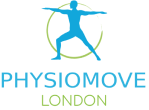
Menopause and Physiotherapy: Navigating Changes with Confidence
Menopause is more than just a biological change; it’s a profound transition that marks a new chapter in a woman’s life. It signifies the end of reproductive years and brings a mix of emotions – relief for some, and a sense of loss or uncertainty for others. The changes can be overwhelming, but they also offer an opportunity for growth and self-care. Understanding the physical and emotional shifts that come with menopause, and knowing how to manage them, is crucial. With the right support and strategies, including physiotherapy, you can embrace this phase with confidence, maintaining your health and quality of life.
Understanding Menopause
Menopause is defined as the time when a woman has not had a menstrual period for twelve consecutive months, signifying the end of her reproductive years. It typically occurs between the ages of 45 and 55 but can vary widely. The transition includes several phases:
- Perimenopause: The period leading up to menopause where hormonal fluctuations begin, causing irregular periods and various symptoms.
- Menopause: The point at which a woman has not had a period for a year.
- Postmenopause: The years following menopause, where symptoms may continue but typically lessen over time.
Common symptoms of menopause include hot flushes, night sweats, mood swings, weight gain, and sleep disturbances. These symptoms can significantly affect daily life and overall well-being. Here are some proven solutions to help manage these symptoms:
- Hot Flushes and Night Sweats: Stay cool by dressing in thin layers, keeping your sleeping environment cool, and engaging in regular exercise. Mindfulness techniques, hormone replacement therapy (HRT), or natural supplements can also be beneficial.
- Mood Swings: Maintain regular physical activity, a balanced diet, and adequate sleep. Techniques such as yoga, meditation, and cognitive-behavioural therapy (CBT) can improve emotional well-being. Staying socially connected is also helpful.
- Sleep Disturbances: Establish a regular sleep routine and create a restful environment. Avoid caffeine and heavy meals before bedtime. Relaxation techniques like deep breathing can promote better sleep.
- Weight Gain: Focus on a balanced diet with fruits, vegetables, lean proteins, and whole grains. Regular exercise, including aerobic activities and strength training, helps manage weight. Monitor portion sizes and reduce sugary and high-fat foods.
Physiological Changes During Menopause
During menopause, the body undergoes several physiological changes primarily driven by hormonal fluctuations:
- Hormonal Changes: The decline in oestrogen and progesterone levels affects various bodily functions.
- Bone Density: Women can lose up to 20% of their bone density in the five to seven years following menopause, increasing the risk of osteoporosis and fractures.
- Muscle Mass and Strength: Menopause is associated with a decline in muscle mass and strength, affecting physical performance and increasing the risk of falls and injuries.
- Cardiovascular Health: The decline in oestrogen can lead to an increased risk of cardiovascular diseases, including heart disease and stroke.
- Metabolism: Slowed metabolism often leads to weight gain, particularly around the abdomen.
- Joint Health: Decreased oestrogen, which has anti-inflammatory properties, may cause joint stiffness and pain..
Role of Physiotherapy in Menopause
Studies show that physiotherapy plays a crucial role in managing the symptoms and physiological changes associated with menopause, offering a holistic approach that addresses both physical and emotional well-being:
- Strength Training: Resistance exercises, such as weightlifting or bodyweight exercises, help counteract the loss of muscle mass and bone density.
- Cardiovascular Fitness: Aerobic exercises like walking, cycling, and swimming boost heart health, enhance stamina, and help manage weight gain.
- Mobility and Flexibility: Stretching exercises and yoga improve joint flexibility, reduce stiffness, and alleviate pain.
- Balance and Coordination: Exercises focusing on balance and coordination, such as Tai Chi, help prevent falls by enhancing proprioception and muscle control.
- Pain Management: Physiotherapists employ techniques like manual therapy, acupuncture, and soft tissue techniques to manage symptoms like joint pain and stiffness.
- Educational Support: Physiotherapists provide education on lifestyle modifications, ergonomic advice, and stress management techniques.
- Tailored Exercise Programmes: Regular physical activity is essential. Physiotherapists can design personalised exercise programmes that incorporate all of the routines and techniques mentioned above.
Pelvic Floor Changes During Menopause
Insights suggest that one of the significant areas affected by menopause is the pelvic floor. The pelvic floor muscles support the bladder, bowel, and uterus, playing a crucial role in continence and sexual health. Menopause can weaken these muscles due to hormonal changes, leading to:
- Incontinence: Activities such as coughing, sneezing, or exercising may result in urine leakage.
- Pelvic Organ Prolapse: Weakened pelvic floor muscles and connective tissues can cause pelvic organs to drop from their normal positions, leading to discomfort and a sensation of heaviness.
- Sexual Health: Decreased oestrogen levels can cause vaginal dryness and atrophy, leading to discomfort during intercourse and reduced sexual function.
- Pelvic Pain: Weakened muscles and decreased elasticity can lead to chronic pelvic pain, affecting overall quality of life.
Physiotherapy for Pelvic Floor Health
Physiotherapy offers effective solutions for managing pelvic floor health during menopause, as data reviews, addressing the unique challenges that arise from hormonal changes and their impact on the pelvic floor muscles. These muscles play a crucial role in supporting the bladder, bowel, and uterus, and maintaining their strength and function is essential for overall well-being. Menopause can lead to weakening of these muscles, causing issues such as the ones mentioned above. Physiotherapy provides targeted interventions to strengthen the pelvic floor, improve function, and alleviate symptoms. Here are some key approaches:
- Assessment and Diagnosis: A physiotherapist can assess pelvic floor function and diagnose issues using techniques such as pelvic floor muscle palpation, ultrasound imaging, and biofeedback.
- Pelvic Floor Exercises (Kegels): These exercises involve contracting and relaxing the pelvic floor muscles to strengthen them, significantly improving muscle tone and function.
- Biofeedback and Electrical Stimulation: These techniques help women gain better control over their pelvic floor muscles. Biofeedback uses sensors to provide real-time feedback on muscle activity, while electrical stimulation helps activate and strengthen the muscles.
- Manual Therapy: Physiotherapists use hands-on techniques to release tension, improve muscle function, and enhance blood flow to the pelvic region.
- Bladder and Bowel Training: Physiotherapists provide education on bladder and bowel habits to manage incontinence. Techniques such as scheduled voiding, fluid management, and dietary modifications can significantly improve symptoms.
- Lifestyle Modifications: Advice on dietary changes, weight management, and ergonomic adjustments can support pelvic floor health.
Menopause brings significant changes that can impact a woman’s health, but with the right support and strategies, these changes can be managed effectively. Physiotherapy offers valuable tools to address both general menopausal symptoms and specific pelvic floor issues. At Physiomove London, our team of experts is dedicated to helping women navigate menopause with confidence, providing personalised physiotherapy plans that promote overall health and well-being. If you’re experiencing menopausal symptoms, contact us to learn how we can support you through this transition.
Discover more about how physiotherapy can help you manage menopause by visiting our website or booking a consultation with our experienced physiotherapists today. Empower yourself with the right knowledge and resources to stay healthy and active during menopause.

